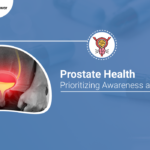Overactive bladder, called OAB, makes a continuous and unexpected urge to urinate that sometimes might be difficult to control. You might feel like you want to pass urine constantly and may likewise encounter unintentional loss of urine (urgency incontinence).
Assuming you have an overactive bladder, you might feel humiliated, seclude yourself, or break point your work and public activity. Fortunately, a concise assessment can decide if there’s a particular reason for your overactive bladder symptoms.
You might have the option to oversee symptoms of an overactive bladder with basic behavioral strategies, for example, dietary changes, timed voiding, and bladder-holding techniques using your pelvic floor muscles. On the off chance that these underlying endeavors don’t assist enough with your overactive bladder symptoms, extra medicines are accessible.
Table of Contents
Overactive Bladder Symptoms
On the off chance that you have an overactive bladder, you may:
- Feel an unexpected inclination to urinate that is difficult to control
- Experience unintentional loss of urine following a critical need to urinate (urgency incontinence)
- Urinate as often as possible, generally at least eight times in 24 hours
- Awaken multiple times in the night to urinate (nocturia)
Regardless of whether you can get to the toilet in time when you sense a desire to urinate, unforeseen successive urination and evening urination can upset your life.
When to See a doctor
Even though it’s typical among more established adults, an overactive bladder is certainly not a typical part of maturing. It probably won’t be difficult to examine your symptoms yet converse with your doctor, assuming they are distressing you or disrupting your life. Medicines are accessible that could be useful to you.
How a Healthy Bladder Works
The kidneys produce urine, which channels into your bladder. At the point when you urinate, urine passes from your bladder through a cylinder called the urethra. A muscle in the urethra called the sphincter opens to deliver urine out of the body.
As your bladder fills, nerve signals shipped off your brain at last trigger the need to urinate. When you urinate, these nerve signals coordinate the relaxation of the pelvic floor muscles and the muscles of the urethra (urinary sphincter muscles)—the muscles of the bladder fix (contract), pushing the urine out.
Overactive Bladder Causes
Overactive bladder in men happens when the bladder muscles begin to contract on their own in any event when the volume of urine in your bladder is low. These are involuntary contractions and make an earnest need to urinate.
A few circumstances might add to the signs and symptoms of an overactive bladder, including:
- Neurological disorders like stroke and multiple sclerosis
- Diabetes
- Urinary tract infections that can cause symptoms like those of an overactive bladder
- Conditions influencing the bladder, for example, tumors or bladder stones
- Factors that impede urine leaving the bladder include an enlarged prostate, constipation, or previous surgery to treat incontinence.
Overactive bladder symptoms may likewise be related with:
- Prescriptions that make your body make a ton of urine or expect that you take them with bunches of liquids
- Drinking too much caffeine or liquor
- Declining cognitive function due to aging might make it more difficult for your bladder to understand the signals it gets from your brain
- Difficulty strolling, which can prompt bladder urgency assuming you can’t get to the restroom rapidly
- Inadequate bladder exhausting, which might prompt symptoms of overactive bladder, as you have little urine storage space left
The reason for an overactive bladder might be obscure.
Risk Factors
You’re at increased risk of treating an overactive bladder as you age. You’re also at higher risk of diseases and disorders, such as enlarged prostate and diabetes, which can add to other problems with bladder function.
Many individuals with cognitive decay — for instance, those who have suffered a heart attack or have Alzheimer’s disease — foster an overactive bladder. Incontinence from situations like this can be made do with fluid schedules, timed and prompted voiding, absorbent garments, and bowel programs.
Some individuals with an overactive bladder also have bowel control problems; let your doctor know if this is an issue for you.
Complications
Any incontinence can influence your general personal satisfaction. Assuming that your overactive bladder symptoms disrupt your life, you could also have:
- Emotional distress or depression
- Tension
- Sleep disturbances and interrupted sleep cycles
- Issues with sexuality
In some cases, treating these associated conditions might assist with your urinary symptoms.
Stress incontinence is the unintentional loss of urine prompted by physical development or movement that puts pressure on your bladder, such as coughing, sneezing, laughing, or exercising. Treatment of stress incontinence is not liable to help overactive bladder symptoms. Similarly, treatment of an overactive bladder is not prone to further developing stress incontinence symptoms.
Some individuals might have a typical blend of bladder storage problems and bladder-discharging issues. The bladder might cause a great deal of urgency and even incontinence. However, it doesn’t void well. A specialist might have the option to assist you with this mix of bladder problems.
Prevention
These healthy lifestyle choices may reduce your risk of overactive bladder:
- Keep a solid weight.
- Get standard, day-to-day physical movement and exercise.
- Limit caffeine and liquor.
- Stop smoking.
- Oversee persistent conditions, such as diabetes, that could add to overactive bladder symptoms.
- Do exercises to make the pelvic floor muscles stronger. These exercises are called Kegel exercises.
Conclusion
Symptoms of OAB can be expected, especially as men progress in years. It is important not to feel embarrassed and to have an honest talk with a doctor to be appropriately diagnosed.
Doctors may consider surgery for people who find lifestyle changes, medication, and nerve stimulation are not working.
Overactive bladder treatment or surgeries involve correcting prostate, bladder, and urethra problems. It may include:
- correcting the position of the urethra
- relieving pressure on the urethra caused by the extra weight
- restoring the role of the bladder
Sometimes, a piece of the gland may be removed in cases of enlarged prostate. Surgery tends to be seen as a last resort or for exceptional circumstances. Looking for the best doctor for this issue, contact the best Urology Surgeon, Dr. Dushyant Pawar!





